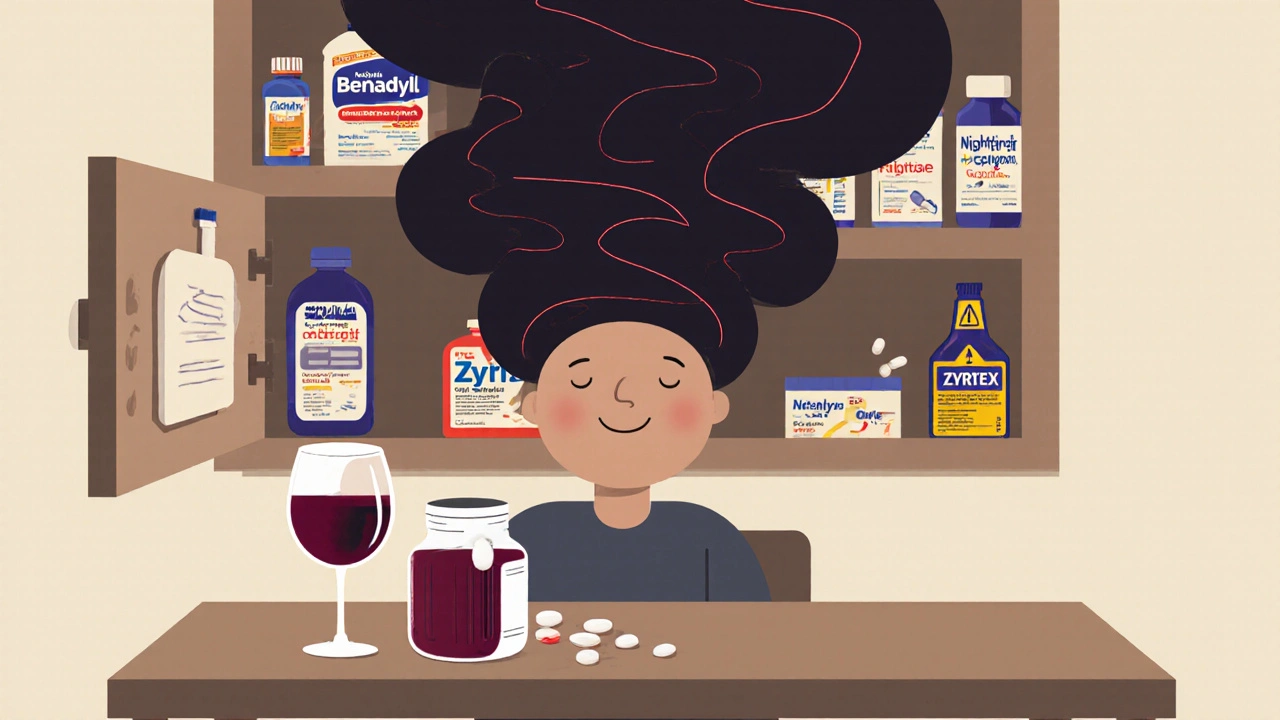Benadryl and Alcohol: Risks, Reactions, and What You Need to Know
When you take Benadryl, an antihistamine used for allergies, colds, and sleep. Also known as diphenhydramine, it slows down your central nervous system to reduce itching, sneezing, and runny nose — but it also makes you sleepy. Mixing it with alcohol, a depressant that affects brain function and motor control doesn’t just add up the drowsiness — it multiplies it. This combo can turn a simple night in into a dangerous situation.
The problem isn’t just feeling tired. diphenhydramine, the active ingredient in Benadryl, and alcohol both target the same part of your brain — the part that controls balance, reaction time, and breathing. Together, they can slow your breathing to dangerous levels, make you lose coordination, or even cause you to pass out. Older adults, people taking other sedatives, or those with liver problems are at higher risk. Even one drink with a standard dose of Benadryl can be enough to cause confusion, falls, or accidents while driving. It’s not a myth — it’s science backed by real hospital cases.
You might think, "I only had one beer," or "I took Benadryl hours ago." But Benadryl stays in your system for 6 to 12 hours, and alcohol doesn’t clear out fast either. That means even if you space them out, the effects can still overlap. Some people use Benadryl to help them sleep and then have a glass of wine — thinking it’s harmless. But that’s exactly when the risks spike. The same goes for nighttime cold medicines that contain diphenhydramine. Read the label. If it says "drowsiness may occur," avoid alcohol entirely.
What should you do instead? If you need allergy relief and plan to drink, switch to a non-sedating antihistamine like loratadine or cetirizine. They work just as well for symptoms without the sleepiness. If you’re using Benadryl for sleep, talk to your doctor about safer long-term options. Don’t treat sleep problems with a drug that’s meant for allergies. And if you’ve already mixed them and feel overly drowsy, dizzy, or confused — don’t wait. Call someone. Don’t drive. Get help.
The posts below cover real cases and science-backed advice on how common medications interact with everyday substances. You’ll find clear guides on what happens when you mix drugs with alcohol, how to spot warning signs, and what safer alternatives exist. Whether you’re managing allergies, sleep, or chronic conditions, these articles help you avoid hidden dangers — without guessing.
